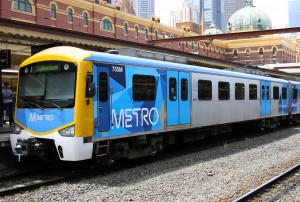Privatisation claims don’t stack up in Melbourne
In the heady days of the 90’s, Liberal Premier of Victoria, Jeff Kennett privatised the states trains and tram network, promising that within ten years government subsidies would fall to zero and there would be a “most wonderful change” to the quality of the public transport.
Since then, it’s been a hard crash for Victorians.
 Government payments for private operation of Melbourne’s trains and trams have ballooned by 40 per cent in real terms in the past decade.
Government payments for private operation of Melbourne’s trains and trams have ballooned by 40 per cent in real terms in the past decade.
This is the reality of life under privatisation. The public never stops paying a price to the private providers. Whether it is through government subsidies, or service cuts, or price increases.
Despite the networks not being held in public hands, the public is still forking out well in excess of $1.5 billion each year, right into the hands of private companies.
Almost all of this increase has gone to the train franchisee, Metro Trains Melbourne, in the form of additional payments for maintenance.
However, the large increases in maintenance funding are not tied to any performance outcomes, e.g. how many kilometres of track have been renewed with the funding. There is nothing in the public domain that explains what all this money is being spent on, except just going back to the company.
Despite these massive increases in maintenance payments, there are an unprecedented number of faults on lines and that private contractors are simply not taking these issues seriously.
They are doing patch-up jobs; they are plating over cracks rather than replacing the rail track because they are seeking the on-time bonus. They are seeking to reduce the amount of time the rail is out of action and seeking to reduce the amount of money spent on maintenance.
Private contractors want to get the maximum they can out of that asset without any regard for the long-term viability of the network, or passenger safety.
On top of this, to save money, and meet timetables, train operators have taken to a practice dubbed “station skipping” and it is exactly what it sounds like. With no prior warning, passengers would find their train speeding on past their station if it was running late, leaving passengers to wait for the next available service.
Poorly drafted contracts made this perfectly legal, and only through intense public pressure and media attention could they minimise the practice when it first arose.
Caps on penalties have also meant that other failures by the private company max out, and no penalties after that amount can be charged, essentially making it easier for the company the more failures they have.
But, as the Andrews Labor Government enters negotiations with Metro for a new agreement between the state and the private companies, performance requirements, penalties and enforcement measures need to be revisited to ensure that passengers receive the service they deserve, not just cost saving from a company more interested in making a buck.
